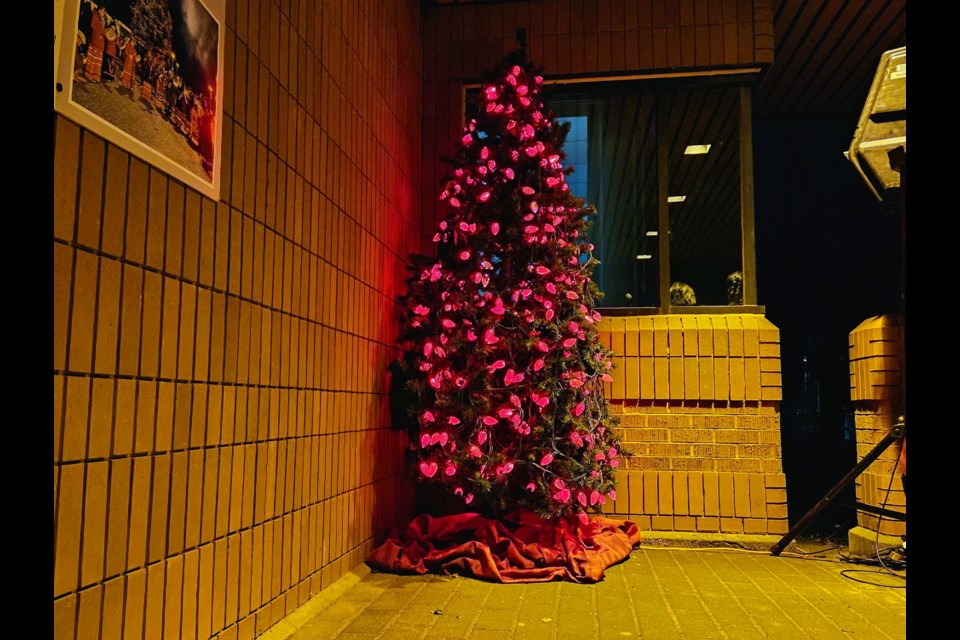THUNDER BAY — This is the fifth year that a tree has been lit to recognize missing and murdered Indigenous women and girls.
At the front doors of the Thunder Bay Police Station, the Tree of Hope is wrapped in red lights and will remain lit until the end of January.
Const. Sharlene Bourdeau started this project five years ago with four trees that had thousands of lights on them, each one a representation of an Indigenous woman reported missing.
"Each light represents the name of every missing and murdered Indigenous woman and girl in the country. [The] RCMP says there's approximately 1,200, but however, there's four to 5,000 Indigenous people in this country believed [to be missing]," Bourdeau said during the lighting ceremony on Sunday.
Thunder Bay isn't the only police service participating in the ceremony, Bourdeau said, adding there are more than 20 police services and detachments that have MMIWG Trees of Hope as well."
Bourdeau is looking to bring the cause to Ottawa and light a tree inside Parliament
"We're going to be partnering with [federal Indigenous services minister] Patty Hajdu. She's promised that we're going to take this to Parliament Hill, and we're going to challenge other police services and other provinces," she said. "I would like to challenge Manitoba next."
Hajdu spoke at the event on Sunday and talked about the systemic racism in Canada's child welfare system and how that contributed to high rates of violence for women, children and those in the 2SLGBTQ+ community.
"It's a big part of why children, women and girls, 2SLGBTQ people face disproportionate rates of violence because the further away you get from education and from the ability to earn a living and from feeling like you're included in society, the more risk that accumulates in your life and it can become really, really dangerous for people who are marginalized like that," Hajdu said.
"I think about all the ways that the state [Canada] perpetrates violence on the lives of Indigenous peoples and communities, sometimes in ways that feel benign to decision-makers, money moving around from one file to another. So I call on all decision-makers who have power to speak out at these tables to advocate for equity, to advocate for equality."
Both Bourdeau and Hajdu are seeing change with the city's new police chief, Darcy Fleury.
"It's really refreshing to see the new chief of police be at this event and to work so closely with his members and to understand the interconnection of policing and racism," Hajdu said. "I think it's making a change, and I hope that that change will continue."
Bourdeau noted what members of the community can do to further the awareness of MMIWG.
"What can we do more is read all the recommendations from the from the national inquiry into missing and murdered indigenous women and girls and it's not the onus is just not on police services. The onus is on the entire community," Bourdeau said.
More details about the final report regarding Missing and Murdered Indigenous Women and Girls can be found here
